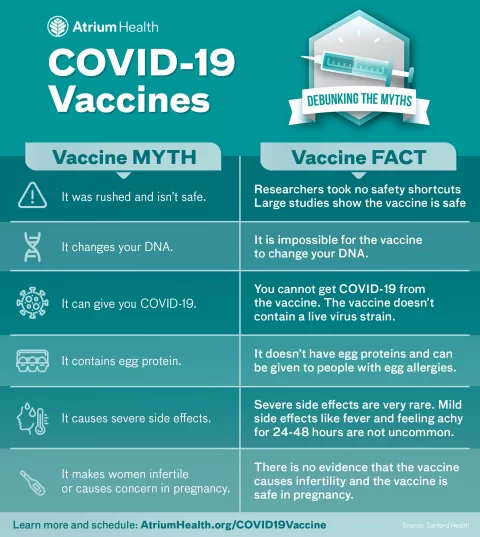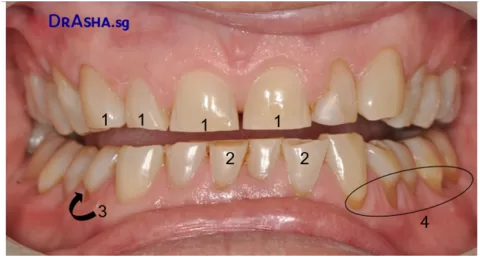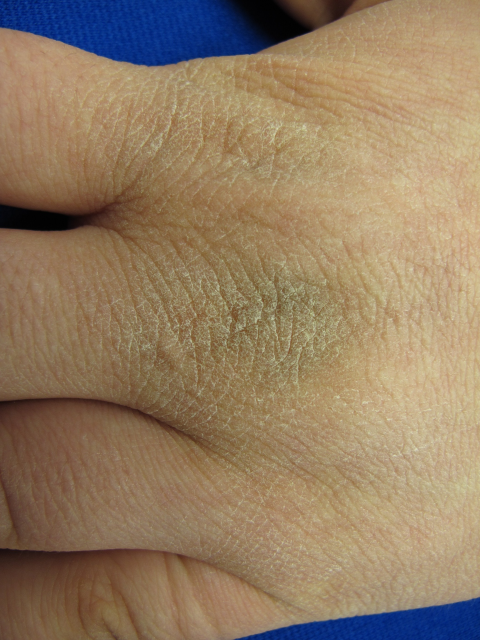Long COVID treatment is becoming a vital area of research as millions of individuals worldwide continue to cope with debilitating symptoms long after recovering from COVID-19. A recent preclinical study has shed light on a novel PLpro inhibitor, a promising antiviral compound, that targets a key viral enzyme responsible for COVID-19 complications. This groundbreaking discovery could pave the way for effective management of long COVID, providing hope for improved outcomes and quality of life for those affected. With lingering symptoms like brain fog, fatigue, and respiratory issues impacting daily activities, the need for reliable therapies has never been more pressing. As scientists explore innovative approaches, this novel compound serves as a powerful tool in the ongoing battle against the long-term consequences of this global pandemic.
The ongoing quest for effective therapy for lingering COVID-19 symptoms has led to intriguing developments in long-haul COVID care. Terms such as post-acute sequelae of COVID-19 (PASC) are gaining traction as researchers strive to understand and mitigate the extensive impacts of this condition. Many survivors of SARS-CoV-2 infection face ongoing challenges, from cognitive difficulties to persistent respiratory issues, demanding urgent attention and novel treatments. Recent investigations into antiviral agents such as a new PLpro inhibitor highlight the potential for targeted interventions that could dramatically improve recovery experiences. As scientists delve deeper into this phenomenon, the exploration of alternative terms and therapeutic options is critical for advancing our understanding and management of post-viral sequelae.
Understanding Long COVID: A Complex Challenge
Long COVID represents a complex and evolving challenge for healthcare systems worldwide. This condition affects a significant proportion of individuals who have recovered from COVID-19, presenting a wide array of symptoms that can persist for months or even years after initial infection. The symptoms range from respiratory issues, overwhelming fatigue, and cognitive impairments, to complications involving the heart and gastrointestinal system. Studies suggest that approximately one in three non-hospitalized patients may experience these prolonged effects, making long COVID a pressing public health concern that demands urgent attention and action.
Despite the availability of vaccines and antiviral therapies that reduce severe outcomes from COVID-19, they often fail to address the lingering symptoms associated with long COVID. Understanding the underlying mechanisms of these symptoms, particularly the role of post-viral inflammation and immune response dysregulation, is crucial for developing effective treatments. New avenues in research are focusing on novel approaches, such as targeting specific viral enzymes, to provide relief for those suffering from this condition.
As the COVID-19 pandemic continues to evolve, addressing long COVID has become an essential aspect of our response. Researchers are emphasizing the need for innovative treatment strategies, including the exploration of antiviral compounds that effectively target viral replication and mitigate immunological damage. The urgency for effective long COVID management grows as millions grapple with its debilitating effects, highlighting the critical nature of continued research and development in this area.
To truly combat long COVID, it is imperative to enhance understanding among medical professionals across disciplines. Awareness and recognition of the condition should be increased to ensure that patients receive appropriate support and therapeutic interventions tailored to their unique symptoms. As we move forward, creating a collaborative approach among researchers, clinicians, and public health agencies will be vital to effectively manage the growing burden of long COVID.
The Promise of PLpro Inhibitors in Treating Long COVID
Recent research has illuminated the potential of targeting the papain-like protease (PLpro) enzyme as a promising strategy for addressing long COVID symptoms. A novel PLpro inhibitor, WEHI-P8, derived from extensive preclinical studies, demonstrates significant efficacy in mitigating the long-term effects of COVID-19. By disrupting PLpro’s function, WEHI-P8 not only inhibits viral replication but also aids in re-establishing normal immune responses—this dual-action approach could redefine our treatment protocols for individuals suffering from prolonged COVID-19 sequelae.
The innovative mechanism by which WEHI-P8 operates reflects a critical advancement in our understanding of viral pathogenesis and immune modulation. Unlike standard antiviral treatments which primarily focus on the main protease (Mpro) of the virus, this new class of inhibitors offers a unique advantage by simultaneously addressing viral evasion tactics. In preclinical models, WEHI-P8 has shown promising results, including the reduction of inflammatory markers and improved recovery in lung tissue health, indicating its potential to serve as a frontline treatment option against long COVID complications.
Moreover, the insights gained from this research may pave the way for other antiviral compounds targeting various stages of viral life cycles. As SARS-CoV-2 continues to evolve, identifying unique vulnerabilities within the virus will be crucial; thus, PLpro inhibitors like WEHI-P8 may not only aid in the management of long COVID but also provide a foundational strategy for combating future coronavirus threats. By prioritizing research into these novel antiviral compounds, we can harness their therapeutic capabilities to better protect global health and prevent the crippling effects of long COVID.
In summary, the findings surrounding PLpro inhibitors signal an important milestone in the search for effective long COVID treatment options. Continued exploration and clinical validation of these compounds may usher in a new era of antiviral therapies that can deliver lasting improvements for those suffering from the debilitating aftermath of COVID-19. The hope remains that targeting PLpro will bring tangible benefits to millions affected by long COVID, ultimately alleviating the significant public health burden associated with this condition.
Preclinical Studies: Insights into Antiviral Efficacy
The preclinical study investigating the PLpro inhibitor WEHI-P8 has provided invaluable insights into the potential efficacy of novel antiviral strategies against long COVID. By exploring the compound’s ability to target the viral enzyme proficiently, researchers have devised a framework for understanding how both acute and chronic complications from COVID-19 may be managed. Initial findings from the study indicated that WEHI-P8 significantly reduced viral load and improved overall survival in models of mild and severe COVID-19, showcasing the promise that lies within targeted antiviral therapies to combat disease persistence.
Moreover, the use of advanced technologies such as high-throughput screening and X-ray crystallography underscores the scientific rigor underpinning this research. By assessing over 400,000 compounds for their ability to inhibit PLpro, researchers have strategically identified WEHI-P8’s selective binding and activity profile. This multifaceted approach not only strengthens the argument for employing PLpro inhibitors in therapeutic settings but also highlights the necessity for continued preclinical and clinical investigations to translate these findings into practical applications for treating long COVID.
Furthermore, the robustness of the findings strengthens the argument for the development of combination strategies that incorporate PLpro inhibitors alongside existing antiviral therapies. Given the interplay between SARS-CoV-2, the host immune response, and inflammatory pathways, addressing multiple aspects of the disease process may yield the most effective treatment outcomes. As researchers delve deeper into this promising realm of antiviral discovery, it becomes increasingly clear that integrating PLpro inhibitors into long COVID management could significantly enhance the quality of life for countless individuals grappling with lingering symptoms.
In conclusion, the preclinical studies surrounding WEHI-P8 underline the potential of innovative antiviral compounds to reshape therapeutic approaches to both acute COVID-19 and its lingering effects. While there’s still much work to be done before these treatments reach the clinic, the evidence suggests that targeted therapy strategies may provide much-needed relief for those impacted by long COVID, signaling a path forward in the fight against this debilitating condition.
Future Directions in Long COVID Research
As researchers explore additional treatment avenues for long COVID, the need for interdisciplinary collaboration becomes increasingly evident. Future research should not only focus on novel antiviral compounds like PLpro inhibitors but also on understanding the broader implications of post-acute sequelae in diverse patient populations. Investigating how various factors, such as genetics, underlying health conditions, and vaccination status influence long COVID outcomes will be critical to developing personalized treatment interventions—accommodating the unique experience of each patient.
Moreover, it is crucial to expand the scope of clinical trials to examine how these antiviral strategies can be integrated with existing therapeutic modalities, especially treatments addressing the immune system’s response to SARS-CoV-2. Establishing partnerships between research institutions, healthcare providers, and public health agencies will be vital for nurturing an environment conducive to quickly translating preclinical findings into human applications. As we gather more data on the long-term impacts of COVID-19, efforts must evolve toward implementing comprehensive care pathways that support individuals recovering from the virus.
With the advent of new antiviral agents, ongoing studies should also prioritize monitoring potential side effects and long-term outcomes resulting from treatment. While the promise shown by compounds like WEHI-P8 is significant, ensuring patient safety and minimizing adverse reactions will be paramount. Continued investment in research that examines both efficacy and safety profiles is necessary to build an evidence base that can guide clinicians in managing long COVID effectively.
Overall, addressing the complexities of long COVID will require a multifaceted and responsive research strategy that evolves as our understanding of the disease improves. By fostering collaboration, enhancing clinical trial designs, and prioritizing patient-centric approaches, we can begin to make significant strides toward alleviating the burden of long COVID and ensuring a better quality of life for those affected.
The Role of Antiviral Compounds in Future Pandemics
The landscape of infectious diseases has shifted dramatically due to the COVID-19 pandemic, leading to an increased emphasis on antiviral compounds in our strategy against future viral outbreaks. Effective management of COVID-19 complications, including long COVID, necessitates an arsenal of antiviral options. The development of novel agents, such as PLpro inhibitors, exemplifies how targeting specific viral mechanisms can lead to more effective treatment paths. By diversifying the classes of antiviral drugs available, we lay the groundwork for a robust response to emerging viral threats.
Antiviral compounds like WEHI-P8 demonstrate the necessity of proactive research aimed at understanding viral biology and human interactions. With the added complexity of mutations and variants posing continual challenges, optimizing antiviral therapies to maintain effectiveness will be crucial. The research community must remain vigilant, focusing on the adaptability of these compounds in the face of evolving pathogens. Such preparation will not only benefit those with long COVID but also safeguard against future pandemics.
Additionally, public health systems must strengthen their frameworks to incorporate antiviral treatments effectively during outbreaks. This includes developing guidelines for early intervention strategies, ensuring equitable access to these therapies, and providing training for healthcare professionals in recognizing and responding to post-viral complications. As the scientific community builds on the lessons learned during the COVID-19 pandemic, integrating antiviral approaches into routine healthcare practices will be key to reducing the incidence and impact of future viral diseases.
Ultimately, leveraging antiviral compounds stands as a critical aspect of our broader pandemic preparedness strategy. With ongoing research and collaboration aimed at refining these treatments, we can move forward with confidence, ready to combat long COVID and other potentially debilitating conditions resulting from viral infections.
Frequently Asked Questions
What is a novel PLpro inhibitor and how does it relate to long COVID treatment?
A novel PLpro inhibitor is a new antiviral compound that targets the viral enzyme papain-like protease (PLpro), crucial in the replication of the SARS-CoV-2 virus responsible for COVID-19. Recent studies suggest this compound may improve treatment outcomes for long COVID by preventing the virus from hijacking human proteins, thus reducing long-term complications associated with the disease.
How does the preclinical study on the novel antiviral compound impact long COVID treatment options?
The preclinical study highlighted the potential of a novel antiviral compound targeting PLpro to serve as an effective treatment for long COVID. By demonstrating significant reductions in both acute symptoms and long-lasting effects in mouse models, this research opens new avenues for developing therapies that may alleviate the challenges faced by individuals suffering from long COVID.
Can the PLpro inhibitor significantly reduce COVID-19 complications in long COVID patients?
Yes, according to recent findings, the PLpro inhibitor has shown effectiveness in reducing COVID-19 complications in preclinical models. Mice treated with this novel compound demonstrated improved tissue health and cognitive function, suggesting its potential as a powerful tool in managing long COVID symptoms.
What role does the novel antiviral compound play in managing long COVID symptoms?
The novel antiviral compound, through its mechanism of inhibiting PLpro, plays a critical role in managing long COVID symptoms by lowering viral load, reducing inflammation, and preventing the establishment of long-term health issues post-COVID-19 infection.
Why is targeting PLpro important for the future of long COVID treatment?
Targeting PLpro is vital as it represents a less-explored pathway in COVID-19 treatment. Unlike existing therapies that primarily focus on the main protease, targeting PLpro could lead to more effective management of long COVID, addressing the virus’s ability to evade immune responses and potentially providing protection against future coronavirus outbreaks.
How does the effectiveness of WEHI-P8 compare to other treatments for long COVID?
WEHI-P8, the novel PLpro inhibitor, has shown superior effectiveness compared to current treatments like Paxlovid by alleviating both acute and long-term symptoms of COVID-19. It accomplishes this without the need for booster drugs, reducing the risk of side effects and offering a novel strategy for long COVID intervention.
What are the implications of the findings from the preclinical study on the future treatment of long COVID?
The implications are significant; the preclinical study paves the way for potentially developing new antiviral treatments targeting PLpro in humans. If successful, this could lead to effective interventions for millions suffering from long COVID and improve readiness against future coronavirus threats.
How might the novel PLpro inhibitor affect the progression of long COVID complications?
The novel PLpro inhibitor has the potential to alter the progression of long COVID complications by acting early to prevent severe immune responses and tissue damage associated with lingering symptoms, thereby improving overall recovery outcomes for patients.
| Key Points | Details |
|---|---|
| Preclinical Study Results | A novel PLpro inhibitor, WEHI-P8, significantly reduces both acute and long-term COVID-19 symptoms in mouse models. |
| Targeting Viral Enzyme | WEHI-P8 targets the viral enzyme papain-like protease (PLpro), which plays a crucial role in viral replication and immune suppression. |
| Treatment Efficacy | Compared to standard treatments, WEHI-P8 more effectively reduces immune cell infiltration and lung inflammation. |
| Impact on Long COVID Symptoms | WEHI-P8 improves lung health, reduces inflammation in the brain, and enhances cognitive function in treated mice. |
| Potential for Future Use | The compound shows cross-reactivity with other coronaviruses, suggesting it could be beneficial in future outbreaks. |
Summary
Long COVID treatment has gained renewed optimism with the recent findings from a groundbreaking preclinical study that highlights the potential of targeting the viral enzyme PLpro. The novel antiviral compound, WEHI-P8, demonstrated its ability to reduce acute and long-term symptoms in mouse models, outperforming existing therapies like Paxlovid without the need for additional medications. As over 77 million individuals have reported lingering symptoms of COVID-19, the development of such treatments could redefine recovery from the virus and prevent further complications. More research is necessary before human application, but this study opens new avenues in long COVID treatment, offering hope to many suffering from its debilitating effects.
The content provided on this blog (e.g., symptom descriptions, health tips, or general advice) is for informational purposes only and is not a substitute for professional medical advice, diagnosis, or treatment. Always seek the guidance of your physician or other qualified healthcare provider with any questions you may have regarding a medical condition. Never disregard professional medical advice or delay seeking it because of something you have read on this website. If you believe you may have a medical emergency, call your doctor or emergency services immediately. Reliance on any information provided by this blog is solely at your own risk.








